#nigel squires
Explore tagged Tumblr posts
Text
I tend to view Riddle of the Sphinx and Misdirection as kind of partner pieces: familial revenge plots deeply involved with Steve and Reece's own interests - with the main communicator of the topics being arrogant arseholes who clearly know a lot about their craft, but obtained their status in shifty and immoral ways (to paint a VERY broad brush of things ofc).
However, I rewatched Misdirection yesterday and, in comparison to Squires at least, god Neville is horrible at all of this.
He really pulls out all of these very ominous and purposeful bits that only he'll get and can find amusement in, such as claiming that "not another living soul" knows "his" trick or that, to him, the theft of an idea is "worse than murder"...
... And then he gets rattled and completely squirms at the ever so-slightest threat from Gabriel. At the mere mention of him having a Grandad as an inspiration for his own interest in magic, Neville is so clearly on edge.
He also immediately folds at Gabriel's Mountweazel note and burns his secret of nine years - turning off the security camera so that there's no proof of anything happening. This is what leaves him with no alibi at the one point he actually needs it.
(Although I do think he could have come up with literally almost anything else to say when questioned about why he removed his security footage other than "no reason". It might not have helped much but it would have made him at least a bit less suspicious).
I think it's clear that Gabriel's plan relied on Neville's unyielding arrogance, but I think it's his paranoia that ultimately ruined him.
Plus, his own lack of creativity - literally keeping the name "A Chair Raising Experience" - also didn't help AT ALL.
Neville's security set up is honestly a really good reflection of himself and ultimately what dooms him. He has the security cameras set up at every angle to protect "his" ideas within the safe that he himself stole, whilst actively bragging in his published book about how well kept a secret he has. He wrote down the secret years ago and yet keeps the original copy and sets up this entire system around a point of potential exposure that does not even need to exist. He's paranoid at every opportunity at the idea of being exposed and yet cannot help himself but to show off.
Arguably, Squires does the same. He was ultimately pushed into a corner by Jacob when he had created a crossword about the current circumstances that easily acts as his own murder confession. Why? "A bit of fun" and to "teach" the girl who he knew was planning to kill him. It's to show off. However, this display of arrogance was done through a belief that he was in control of the situation. He was "aware" of the plan to kill him prior and so felt he could act in complete security and without consequence.
Squires' arrogance that got him in the end was without any nervousness or insecurity. Meanwhile, Neville's arrogance and desire to show off was in spite of his own insecurity.
#i wish i didn't type up most of my thoughts when I'm tired but alas ¯\_(ツ)_/¯#Neville is the worst both in terms of morals and like ability#love that#misdirection#the riddle of the sphinx#inside no 9#in9#nigel squires#neville griffin
20 notes
·
View notes
Text
Another round of heats to jump into! We're getting so, so close to the next heat, I'm very excited! Speaking of, here are the people we sadly lost this round for Steve's characters:
Jorg (</3), Keith (underrated king icl), Willy Wando, and Mr. Edwards! Therefore, Carl (who had 100% of the vote for the first half an hour of the poll, understandable) and Bobby!
Our next poll for Steve's characters puts Tony, Prof. Nigel Squires, David Sowerbutts, Trevor, Ezra Jones, and Jason all against each other! Very interesting bunch of characters, I must say.
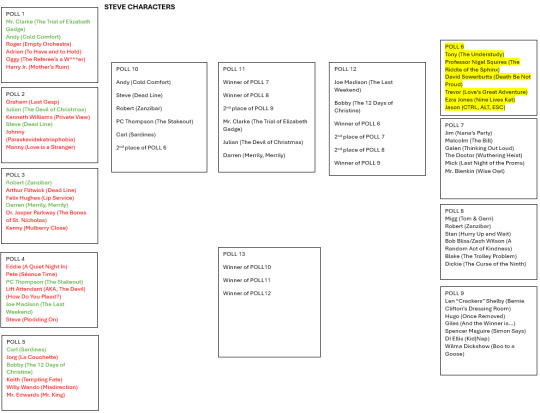
14 notes
·
View notes
Text
here are my spotify playlists i think some of you would like
✭ underrated sixties - oh you know your beatles and your rolling stones and your beach boys, but how about something a little different?
✭ dancing with nigel in my living room while listening to our record player, 1979 - we'll bitch about what's on top of the pops but we still watch it and enjoy the music. when it's finished, we then grab out the record player and dance the night away, praying not to wake my parents.
✭ painting a jackson pollock no. 5 with squire - it’s the middle of the afternoon. the sun is trying so hard to peek through the english clouds. me and john are in our garden, soaking up the sun as i'm laying on the grass while he tries to finish his painting. i peer over at his work and say “it looks like a jackson pollock no. 5…"
✭ shopping in carnaby street with mr shampoo - for those time me and brian went on a shopping spree in carnaby and king's st., spending our entire paycheck on velvet, silk and satin…
✭ sunshine music - a very underrated genre. just pure happiness. what's not to love?
✭ songs from tumblr dot com - songs that you'd find rb'ed on bbbrianjones.tumblr.com <3
distant memory - songs that remind me that someday i will only be a memory in someone's mind and they might ask themselves "i wonder what emmi's doing?"
49 notes
·
View notes
Text

is david from diddle diddle dumpling related to professor nigel squires or did they just run out of names
12 notes
·
View notes
Text
Fantasy Month :Sword of the Valient
So Ive been looking at diffrent stuff for Fantasy Month:Video games ,comics,Radio plays ,Cartoons ,a retrospective and even a concept album ,but I havent done the main thing I do for these motnhs :WAtch a film I havent seen before .Now some of you might be disappointed this isnt Ladhawke ,Die Nibelungen or Son of the White Mare ......But I wanted to start with a light one(Especially since the LOTR reviews are so in depth ) and Ive had this DVD for a few years now ,so lets talk about Sword of the Valaint

In this 1984 film The Green Knight (Sean Connery ) he purposes a game to the knights of King Arthur (Trevor Howard ) ,to which only a squire Gawain (Miles O Keefe) accepts ,cutting off the fey knights head only for the fella to put it back on and gives the young man a riddle to which the answer will save his life and one year to solve it.......Or his head belongs to the Green Knight
So this is a very loose adaptation of the poem Sir Gawan and the Green Knight,,,,,,,,But also its a remake,Stephen Weeks directed a film version of the poem in 1973.....And I guess ten years later he wanted to remake his own film.Now Ive actually looked at that film as well as the excellent 2021 film the Green Knight .....But while I could compare Im not going to ,I want to view the film on its own . If you want the short version ,this is better then the 73 film,but the 2021 film is better then this
As for the film itself....It is what it is ,kind of a standard sword and sorcery film.I guess I wanted a little more .I dunno I love this tale and a lot of the actors in this like John Rhyse Davies ,Peter Cushing,David Rappaport ,Douglas Wilmer and Ronald LAcey are good performers.....But other then Lacey who is the main villain ,a lot feel under used .Will say LAcey is a perfect villain,slimey and creeppy.....Though I think Lacey might be too old for the role ,cause his dad is played by John Rhyse Davies,,,,,Who Lacey is VISIBLY OLDER THEN.....By 9 years
Miles O'Keeffe is decent as Gawain and I like the idea of his journey ,but I dunno why but I dont really feel him change that much .Also the original choice was Mark Hamill,but the producers at Cannon really wanted Miles O'Keefe.....Which baffles me cause wouldnt getting HAMILL be such a coup for this film ,but who am I to argue with the guys who made superman 4
Now lets talk about our main antagonist,while most takes on the Green Knight are more neutral ,this is an antagonistic take ,An ancient and powerful fey who even Morgan Le Feys power is eclipsed by him,and he is played by Sean Connery ,one of the most beloved moviestars of the mid to late 20th century ,and the favorite actor of my grandfather ......And I am of two minds on Connery.On one hand ,I prefer the more mysterious takes by Ralph Ineson and Nigel Green ,and while those actors sort of embody and become the character,,,,,Connery is just Connery ,he is one of the most recognizable actors of his time and doesnt disappear in the role ....At the same time Connery has great screen prsence ,its fun to see Connery play not a villain but certainly an antagonist when we are so used to him in heroic roles ,I really love his costume design very elaborate but effective without being to inhuman ,and its just fun to see Sean Connery with magic powers ,
I keep flip flopping but while not a lost classic,it is fun to watch ,especially the glittery Connery .I do think it is especially an interesting watch now that the Green Knight exists
@countesspetofi @theancientvaleofsoulmaking @princesssarisa
@the-blue-fairie @themousefromfantasyland @ariel-seagull-wings
@barbossas-wench @filmcityworld1 @amalthea9
3 notes
·
View notes
Note
7 for the ask game!!!
7. Your favourite characters of the boys?
Uh it's so difficult... Keeping it to Inside No 9 only... In no particular order, 9 faves for each of the lads
Reece - Maureen Sowerbutts, Drew Dawson, David from DDD, Mr Warren, Urban Bedford, SPC Varney, Aidan from Thinking Out Loud, Scaramouche, Ronnie from Wise Owl
Steve - Prof Nigel Squires, Blake Chambers, Len Shelby, Wilma Dickshow, Adrian from To Have and to Hold, Mr Clarke, Julian from The Devil of Christmas, David Sowerbutts, Harry Blackwood
~~~~
Thanks for the ask, I hope you enjoyed my answer!
2 notes
·
View notes
Text
Jaune Arc- The Most Horrendous Knight Ever. (Twin Revisions)
Silence My Minions!! Now as you know yesterday night I did a why Jaune is a horrible knight post and the what not. But today I deleted it cause some stans really just wanna say that he is "isnt a knight." but knight inspired. Aight. Aight! I might as well hop onto the rewriting post and use everything to my knowledge. Cause holy hell almighty this was giving me a headache.
and having me in my bed like:

"I know this motherfucker did not just cherry-pick my whole post"
So yes, I deleted and a few of my replies and decided to get some help for this one. By the way huge thank you @burgers-and-diatribe for giving me a helping hand on this one. Y'all go check'em out and giv'em a high five. Cause they were a huge help for this revision.
So without further ado. Lets get into it.
Now before hand we're just going to get into it a huge part of RWBY's characters whether it be extra, protagonist, or antagonistic characters are inspired by either Fairytale, Historical, or Mythological figures. This can also include the Romanticization of Fairytales as well.
Now Jaune Arc is based off the historically legendary female knight of the Hundred Years War. Joan of Arc. Who was well known for having been granted a vision by the Archangel, Michael to save France from British Domination. This would later on culminate into her arrival at Orleans and participating in major battles and even after her death it would pave the way for the French to claim victory in the Hundred Years War several decades later.
Jaune would immediately trip over and fall flat on his face cause he can't even hold a candle up to Joan of Arc. Because it would better fit the historical allusion if he:
His Semblance was based around seeing into the future Which despite Transitioning Into A Woman In Later Volumes or Being Born as A Woman and being called Jeanne. Having erratic visions of Fire, being related to Cinder and a possible future of her death or a battle that could lead to her death.
Possibly her death inspiring others or paving the way for a major victory.
At the same time, they dont allude to their historical counterparts unlike how Jaune does so. Instead they go for the Paladin route due to it being such a huge Dungeons and Dragons concept as he achieves Aura Amplification which is none other than the Lay On Hands ability minus the healing factor of its ability.
I know Jaune is a Fantasy Knight but at the same time in Volume Nine he is called the RUSTED KNIGHT. in which at that point he either is or inspired by the romanticized concepts of the Code of Chivalry.
Before I hop into this lets just get this out of the way
Real Life Knights =/= Fantasy Knights
This is because Real Life Knights are by far not the romanticized concepts that we read or watch in media. As Real Knights were just overall horrendous, cruel, and even lazy. This is because most knights that we know in real life were in fact noblemen born into knighthood beginning their training no less than the age of fifteen. Then made into a squire and then into a knight.
Now knights in our world pillaged, murder, or even did many more horrible things in order for their status to be seen during the Middle Ages. As there have been many many accounts of knights doing horrendous atrocities as well.
As one account during the Age of Chivalry (The 11th to the 12th Century) as a historian recounts Sir John Arundel and his band of knights taking refuge in a convent violating the Nuns and stealing from them and throwing them overboard once they were all but used up. Not to mention real knights would usually face off against other knights. Sometimes in duels to resolve petty conflicts, entertainment or in festivals as well.
As the book Chivalry in Medieval England by Nigel Saul states; "Knights only fought for three things. Land, Gold, and War Booty."
Now as for Fantasy Knights this is not applicable to their Real Life counterparts as they are no means perfect as well. But its once again those romanticized concepts of what we see knights as. Noble, Kind, Understanding and Powerful altogether.
Now do they follow the concepts of Code of Chivalry? Ehhhh. Maybe depending on the character(s) in media.
As some Fantasy Knights are either, Sellswords, Free Knights/Paladins, Servants to a Lord, King or Queen, or Baron. Hell or even just bandits.
Now there are only two accounts of the Code of Chivalry
Song of Roland’s Code of Chivalry:
Fear God and His Church Serve the liege lord in valor and faith Protect the weak and defenseless Live by honor and for glory Respect the honor of women
King Arthurs version of the Code of Chivalry:
Honor Honesty Loyalty Valor
Now in my last post I did say Jaune should have been following those concepts of chivalry and how he falls flat in some areas of it. Until I was corrected saying that I shouldnt be applying those especially with how "vague" it is for something that is from a romanticized fairytale. It was then when I realized that if Jaune were to be a true knight he would have swear fealty for a Lord or King to follow those Codes of Chivalric Faith.
Now can I not apply those things to Jaune. No.
But Can I make him to the point where he was inspired by the Codes of Chivalry. Since Rooster Teeth made Jaune as a fictional character following a real life concept (Aka the Romanticized Concepts of the Codes of Chivalry), such as Knighthood.
Also the fact that monarchs did exist in Ancient Remnant in Volume 6 which further cements the fact the knights existed and with Ozma/Ozpin being a knight during that time.
Its almost as if saying Robyn Hill isnt based off of the Romanticization of Robin Hood because this, this, and that. Or because it does not in exist in Remnant. Once again RWBY's characters are based off of Fairytales, Historical, or Mythological figures we know of IRL. and yes even Romanticized Fairytales can count as well.
Yes I know some people will come at me and call me a Jaune Hater just because me and many many others rag on him. But at the same time... I rooted for him to become better. And due to idiotic writing decisions from Miles Luna and making him into a Ron Stoppable, shoe horning him into important scenes and the like. It only made me hate him more. The
I Like Him For the Character He Could Have Become.
Instead he is a failure to live up to his historical allusion and even fails at being a knight/ paladin archetype.
TL;DR: Another revision on how I explain why Jaune fails at being a Joan of Arc Allusion and a Knight Allusion
#RWDE#//Okay Fucking hell this may be the last time I'll talk about Jaune#//Hell I wont even do anymore Jaune shit after this#//Cause I really wanna talk about Sun Wukong#//Or even Curious Cat
13 notes
·
View notes
Text
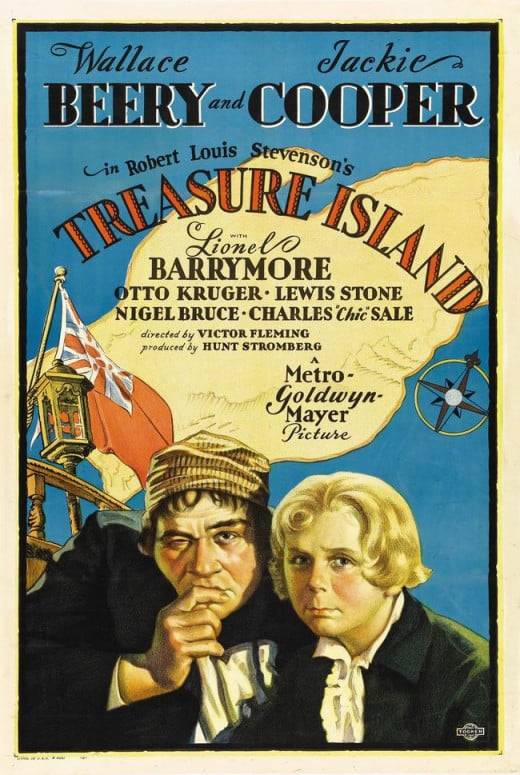
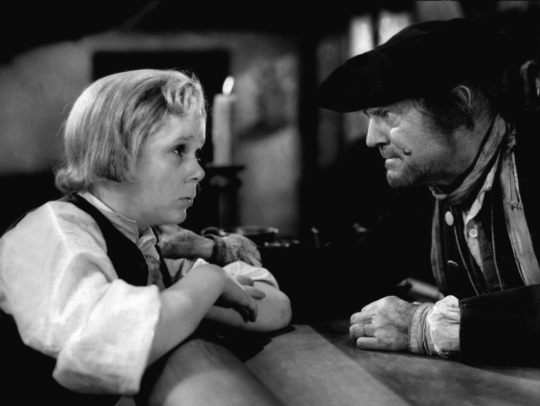


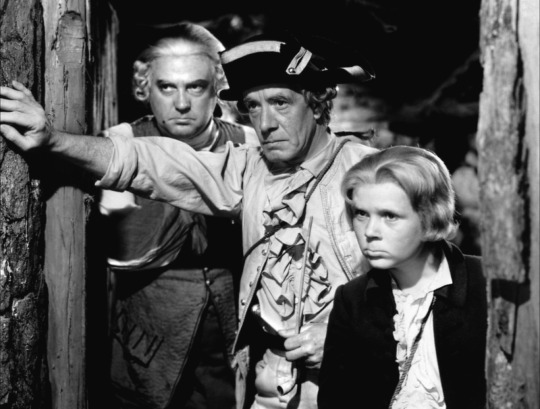

Treasure Island (1934) Directed by Victor Fleming
Wallace Beery - Long John Silver Jackie Cooper - Jim Hawkins Lionel Barrymore - Billy Bones Otto Kruger - Doctor Livesey Lewis Stone - Captain Smollett Nigel Bruce - Squire Trelawney
21 notes
·
View notes
Text

@formshaper: [dream] do you visit cemeteries often? — GARDEN OF EARTHLY BODIES STARTERS
' what, you don't? tch, the way you doll up, squire, i'd've thought trippin' amongst the tombstones would be yer go-to weekend off. best be careful, or the kids'll call you a poser. '
it all falls dismally flat, artificial mirth tapering out into heavy silence. he tips his head back and blows out a breath, the rising fog of life crystallizing in the cold air; the only sign of life, within these gates. ' you askin' me if i do it fer kicks, or to grave-dig? answer's the same either way: not really. ' he looks sideways to flash dream a humorless grin. ' gets dead boring around here. '
two rows back and three left from the open grave he's standing in, alba suria is buried. four back and seven right is nigel archer, despite his fervent fucking wish to be cryo-frozen and sunk to atlantis, the numpty. ritchie simpson had been cremated — no choice, the state of him — but his sister's plot is three rows down from rick the vic's, which is eight across from straff and his mum, forty feet from the fence that separates all your average everyman's corpses from intruding on the solace of the wannabe pharaohs of london and keeps albert case securely guarded inside the sackville mausoleum.
so, yeah, maybe he does visit cemeteries a bit often. why not? all his friends are here.
' . . . do they dream? where they are? ' he doesn't know why he asks. he certainly doesn't fucking want to know the answer. he chucks the spade out of the hole and crouches down to shove his hands in the dirt, digging with a viciousness born of defensiveness, carving past worms and shavings of rotted wood and grimacing as tiny pebbles squeeze up underneath his fingernails. there's something cathartic about the pain, about breaking his manicure down into mess. there's something cathartic about getting his hands dirty. ( better late than never, right me old mates? ) ' always sort of hoped they would. maybe just to pass the time, like. or to make it easier losin' everything and everyone you ever cared about. 'ere — '
he straightens up abruptly and tosses something out of the grave to dream: it's a skeletal forearm, with just enough stubborn ligament to keep most of the hand flopping comically at one end. the middle finger is up. constantine's grin is just as wide and toothy as every other six-foot-down denizen of this shithole.
' — give us a hand, wouldje? '
see, that's the really fun thing about being mates with a guy who's not so up on human culture: all the old jokes never get old.
#formshaper#this went! a direction!#john (professional cemetery lurker): why would you ask me this#also john: why would i ask YOU this#also the idea of some goth kids calling dream a poser has me ROLLING#ask to tag /#( V. ) STEPS FROM THE SHADOWS. ( i. )#( answered. ) THIS IS JOHN CONSTANTINE. FUCK OFF.#sched.
2 notes
·
View notes
Text
Turn it up with Gerry Casey Show #239
Making a Scene Presents Turn it up with Gerry Casey Show #239 and his Guest Alice Armstrong Liam Gallagher & John Squires Raise Your Hands Wildstreet Come Down Nigel Connell Everybody’s Born To Run Bruce Springsteen Letter To You Ben Reel Come A Long Way Davy K. Project The Loner JJ& TJ Highwire Blues Southbound Snake Charmers On My Trail Robert Jon & The Wreck Dragging Me…

View On WordPress
0 notes
Text
The Smile — Wall of Eyes (XL)

youtube
Thom Yorke, Jonny Greenwood and Tom Skinner’s second album as The Smile, Wall of Eyes, is a notably different beast to its 2022 predecessor, A Light for Attracting Attention. The new record comprises five songs that the band has been playing live over the last year or so (“Teleharmonic,” “Read the Room,” “Under Our Pillows,” “Friend of a Friend” and “Bending Hectic”), plus three new songs (the title track, “I Quit” and “You Know Me!”). The eight-song track list feels rather scant compared to ALFAA’s 13 songs, and the album clocks in at an economical 45 minutes, neatly divided into four songs per side. Another notable difference is the absence of producer Nigel Godrich, replaced by Sam Petts-Davies, who’s previously worked with Yorke on the Suspiria soundtrack. How does it stack up against my favorite album of 2022?
Wall of Eyes’ three singles are all very different, immediately suggesting an eclectic listen, aching to be brought into coherence. “Bending Hectic” arrived first, prior to the album’s announcement, and initially seemed like it would be a standalone single. Clocking in at a whopping eight minutes, with a hair-raising “Day in the Life”-style string crescendo, it’s The Smile’s heaviest track to date. It builds delicately in its opening minutes with eerie string bends and a loose, exploratory rhythm section, before locking into a tentatively loping groove. After the nightmarish string section scythes through, all three members burst in, playing hard and heavy, the guitar and bass tones crackling with distortion. Second single “Wall of Eyes” is a much more restrained offering in 5/4 time, delicately played on nylon-string guitar, bass and tom-toms. The strings here are especially subtle and deeply satisfying, betraying Greenwood’s cinematic experience. Third single “Friend of a Friend” is different again, dominated by Beatles-y piano and a surprisingly dry and spacious mix. It couldn’t help but come across as a rather odd choice of single, but is much more successful in the context of the album, following the ambient coda of “Under Our Pillows” and opening side B with restraint and grace.
The album’s gorgeous standout, “Teleharmonic,” arrives early in the track list, almost trip-hop in its atmospheric color and muted palette, and featuring some lovely flute from guest musician Pete Wareham. Dynamics are summoned via Greenwood’s pulsing bass figure, plus cymbal washes from Skinner that are looped and pitch shifted to create a disorientating backdrop to Yorke’s most affecting vocal performance on the album. On “Read the Room,” Yorke’s gutsy bass-playing has the grit and fretboard-leaping dynamics of Yes’s Chris Squire, as the trio lock into a prog-indebted series of passages.
One criticism I levelled at their debut was the instrumental transitions within songs such as “Thin Thing” and “Skrting on the Surface,” which often felt a little rudimentary and underdeveloped. The shift from the satisfyingly strident first half of “Read the Room” into its head-nodding krautrock finale is achieved via a rather basic-sounding electric guitar riff from Greenwood. At the end of side A, “Under Our Pillows” opens with Greenwood’s trademark needling delayed guitar tone, which on first listen sounds uncannily similar to ALFAA’s “Thin Thing.” The song evolves similarly to “Read the Room,” but its transitions are far more elegant, the song finally dissolving into an extended outro of synth static.
The remaining two tracks, “I Quit” and “You Know Me!”, work well enough in the context of the tracklist, but don’t offer much in the way of memorable songwriting or engaging performances. “I Quit” acts as a light palate-cleanser, sliced and diced with glitchy effects, before “Bending Hectic” throws the listener off a cliff. Then, at the album’s close, “You Know Me!” is the kind of glacial piano-and-strings ballad that Thom Yorke can pull off in his sleep.
Compared to its predecessor, Wall of Eyes can’t help but come across as transitional. While there are some undeniably great moments, the overall experience feels a little low-stakes and disappointing. The Smile may have their own unique and burgeoning musical chemistry, but I for one hope the rumors that Radiohead may reunite this year prove to be true.
Tim Clarke
0 notes
Text
1914 Freedom's Five (Limited series)
Victorex Prime or the Scarlet Centurion (a Kang variant) is bored of life in the 40th century, having conquered everything there is to conquer. He has now resorted to conquering various eras of the past to alleviate the boredom. He has been trying to conquer earth during the chaos of WWI, identified as a good point in earth's history. Suitably advanced, but no notable superheroes. He has future tech and future fighters and they are mistaken for ‘martians’ by the public.
The Time Variance Authority aren't pruning regularly yet as this is still the time war, though He Who Remains (not named in the show) has worked out the technology. They have to stop the Scarlet Centurion to finally bring about the sacred timeline. They've stopped him twice and he escaped both times. They know if he continues to mess with this timeline then time eaters (demons from outside of time) will eventually consume it anyway. We will see this take effect in Legion later on.
Revonna Renslayer, a time judge, wants to use the new technology to prune the timeline, Kang variant and all. Mobius wants to try something different to see if the timeline can be saved.
He tips off an obscure superhero team of the period and they take out a ‘martian’ tripod by themselves, proving to Renslayer that there is a possibility to save this timeline.
Our heroes have to fight alongside the TVA against the invasion whilst simultaneously staving off being pruned by the same group.
The team are called ‘Freedom's Five’ (cringe) and consist of:
The Crimson Cavalier - Jean-Luc Batroc, an antecedent of Batroc the Leaper from CA:TWS. Equally adept at savate, swordsmanship and proto-parkour athleticism (studied under Georges Hérbert at Reims University in France). He was a criminal in peace time but fights for the freedom of France. (Played by David Belle).
Iron Fist - The Orson Randall version. Orson abandoned his post as protector of the heavenly city of K'un Lun (luckily they replaced him before the city was attacked). Born in K'un Lun to an American father, he is headstrong and brash but also brave and protective of his comrades. He channels the mystical power from his fists into dual-wield pistols, extending the range and accuracy of his power as well as being an expert martial artist. He replaced the Silver Squire in the Squad. (Played by Brandon Lee).
Phantom Eagle - Karl Kaufmann. American born German who fights for the allies. The aceiest of flying aces and skilled at hand to hand combat too. (Played by Dolph Lundgren)
Sir Steel - Ned Chapel, a Yorkshire blacksmith, worked on the Armatage Estate and was bequeathed the enchanted armour Sir Steel. He is a master swordsman and has near invulnerability from his enchanted armour. His sidekick the Silver Squire is currently injured and therefore absent from the team. (Played by Sean Bean)
Union Jack - A young Lord James Montgomery Falsworth. Studied at Reims with Jean-Luc. Equally adept at the proto-parkour style of athleticism. Dead shot with a pistol and skilled at hand to hand combat. Sometimes converses in French with Jean-Luc. (Played by JJ Feild. Though I'm tempted to replace him with an age appropriate Nigel Havers).
TVA characters:
Judge Revonna Renslayer
Agent Mobius M. Mobius
General Dox
Hunter B-15
Hunter C-20
Hunter X-5
Various hunters and agents, maybe some clerical workers back at the TVA.
Other characters:
Lady Falsworth, the fiancée of James who holds a secret (she is Inhuman).
John Falsworth, younger brother of Lord James. Irked at being second in line for the title.
Ursula Frankenstein, John's love interest, has an ulterior motive for being with John. She is close to making a breakthrough in reanimation and is willing to go to whoever will fund her, including Hydra and mysterious cults.
Scarlet Centurion's warriors
Also Military types of the era
In the end they succeed, with TVA having to wipe everyone's memories of future tech and time travel. The government, with limited information, pass it off as a massive German bombing raid.
The Freedom's Five know it wasn't that, but they don't know what it was.
Back at the TVA, Mobius is disappointed that they had to take their victory away from them. Renslayer reminds him that was the only thing that saved them from being pruned.
#iac#it's all connected#mcu#marvel cinematic universe#marvel#Lord James Montgomery Falsworth#union jack#The Crimson Cavalier#Sir Steel#Phantom Eagle#iron fist#orson randall#tva#time variance authority#mobius#ravonna renslayer#hunter b 15#freedom's five#world war i#wwi#scarlet centurion#victorex prime
0 notes
Text
Wilma SWEEEPPP. Not really, but she still won.
With that, we have lost The Doctor, Blake, Mr. Clarke, Julian, and Darren. This is getting so exciting now you have no idea.
This poll follows Joe, Bobby, Prof. Squires, Malcolm, Migg, and Len. I don't know who is gonna win this one either I'll be honest. We'll see!!
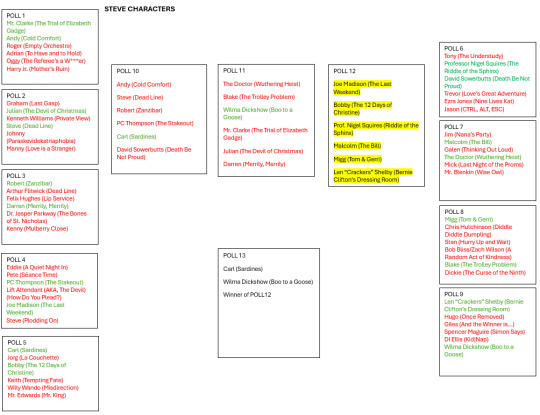
9 notes
·
View notes
Text
Oooooh this is hard
Reece: Viktor(once removed), Judee Levinson (log), Ollie plimsolls (log) , his character from hh, Maureen sowerbutts(Psychoville/in9)
Steve: Pauline (log), tish (log), David sowerbutts (Psychoville/in9), Barry styles (in9),Nigel squires (in9)
Think all my mutuals are tagged so join if you want! <3
had this idea for a tag game for quite some time now and i am curious to see your choices
Share your top 5 comfort characters of Steve Pemberton and Reece Shearsmith
mine are:
Steve





Reece
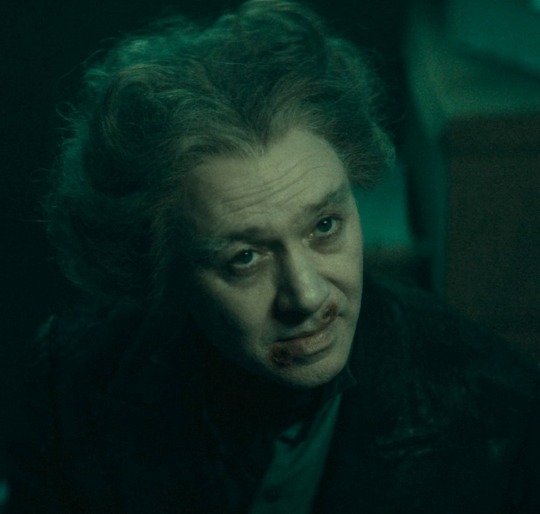
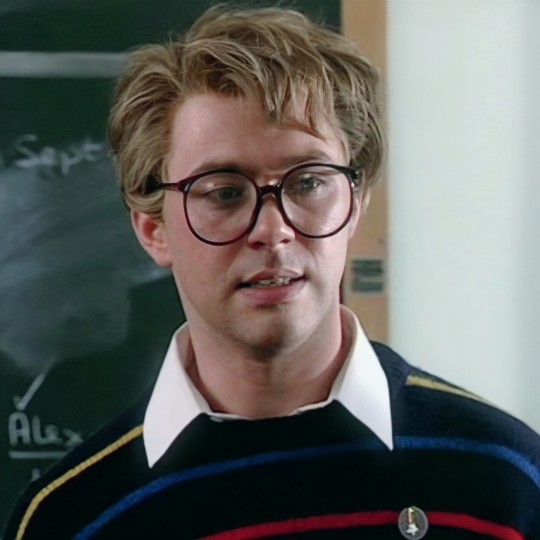



Tagging some lovely mutuals alphabetically
@a4chocolate @almost-born-in-1893 @amalthea9 @cryingfortheday @elizabeth-gadge @gavetheflamingswordaway @haras24 @lapis-lazuliie @9leaguesofmirrors @legzakimmbo @lemonwisp @lilac-paeonia @parnagfegg @paulinewoodall @retourne-toi-eurydice @rumproastgirl84 @rumrum1708 @screamqueenobv @the-20th-century-girl @thehistoryone @vaexathear @whizbang-cap @yonderghostshistories and everyone else who likes to join
29 notes
·
View notes
Text

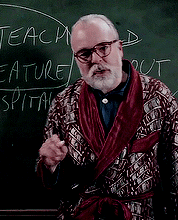
Imagine being Nigel's favorite student.
"Yes, Y/N?" You stood up and he could not hide his delight when you gave a perfect answer to his question. He nodded and shot you an approving smile.
He was slightly proud that it was you who raised a hand. On the other hand, it was quite predictable, you were one of the smartest students he have had a privilege to teach. But maybe his judgment was a little biased with you.
"Good one, that's correct!" He exclaimed and turned back to the board to write down the conclusion, hiding his smirk noticing the way your face has light up.
masterlist | request rules
#Nigel Hector Squires#Nigel Squires#Nigel Squires imagine#Nigel Squires x reader#inside no 9#inside no 9 imagine#inside no 9 x reader#in9 imagine#in9 x reader#The Riddle of the Sphinx#Steve Pemberton#i'm so obsessed with Steve's absolutely ravishing look in this episode#maybe i was listening to 'young girl' while writing this...#who knows#maybeee i wanna be his teachers pet#LOL#don't judge me#Nigel Squires my beloved
18 notes
·
View notes
Text

THE WHITE COMPANY by Sir Arthur Conan Doyle. (New York: Morrow, [1988]). Illustrated by N.C. Wyeth.
In 1366, while England is at war with Spain, young Alleyne Edricson becomes a squire to Sir Nigel Loring and travels to France to join a bold band of archers known as The White Company.
Originally published (New York: Cosmopolitan 1922)



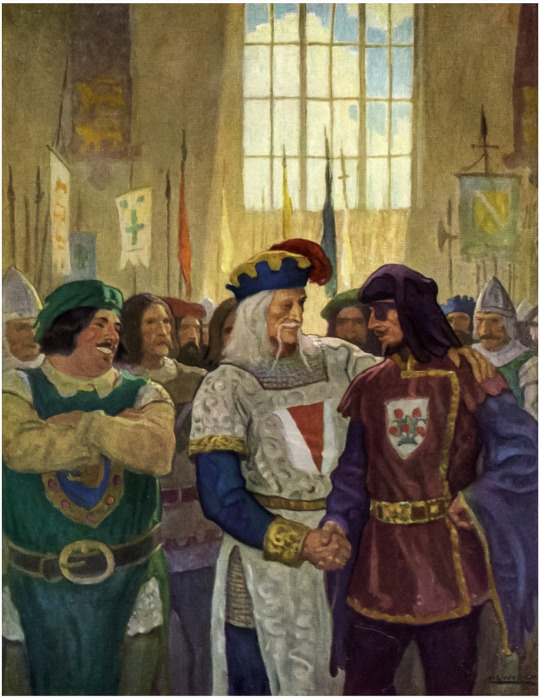





source
#beautiful books#book blog#books books books#book cover#books#illustrated book#vintage books#arthur conan doyle#n.c. wyeth
49 notes
·
View notes